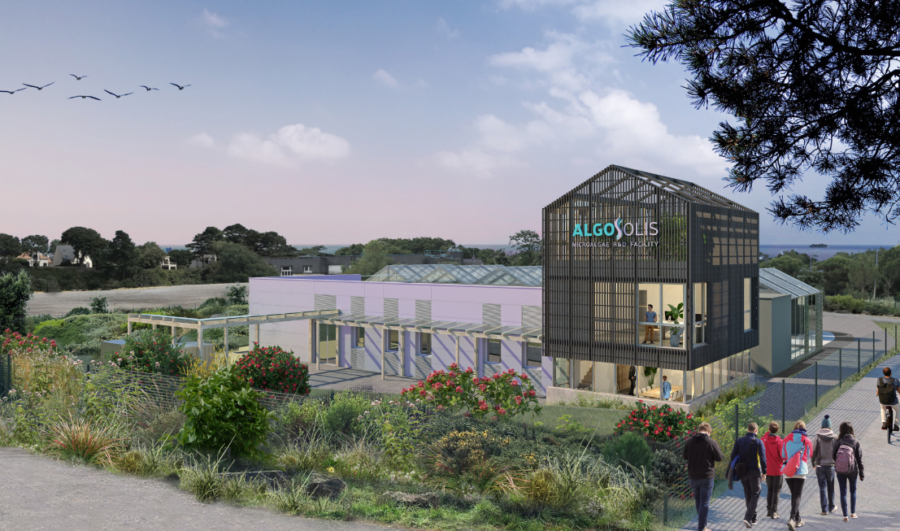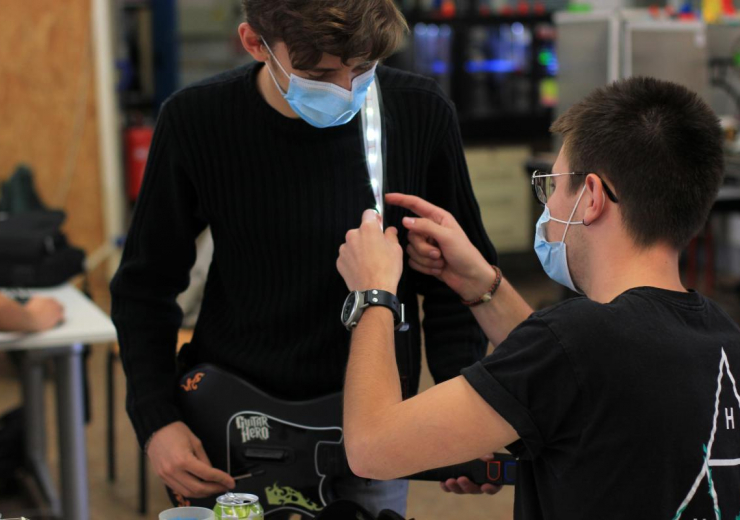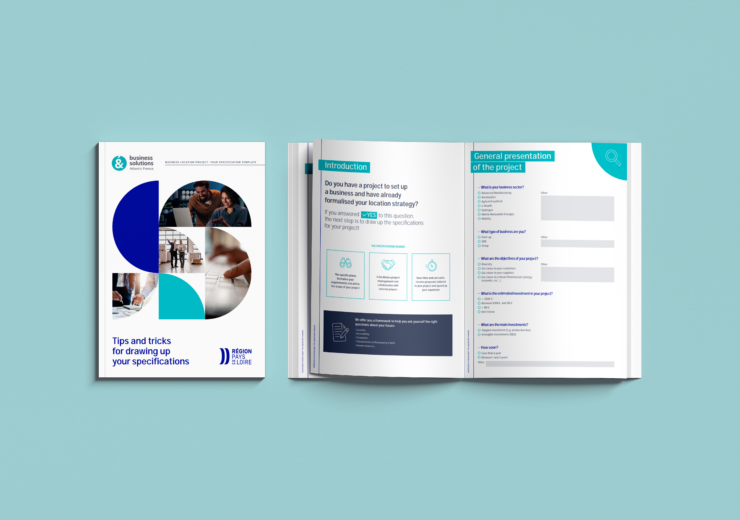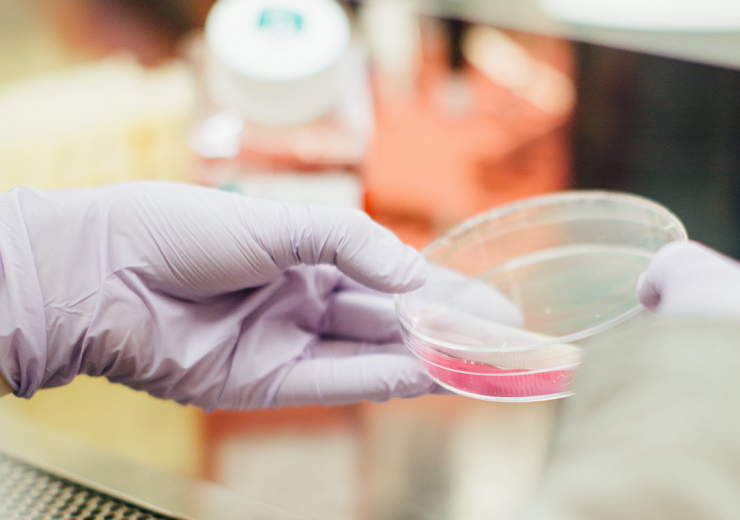AlgoSolis aims to meet the challenges of the industrial exploitation of microalgae. Located in Saint-Nazaire, this innovative R&D platform was created in 2015 and places the Atlantic France region at the forefront of research and innovation in this field. The following interview is with Prof. Pascal Jaouen, the centre’s deputy director.
How is AlgoSolis organised and what are its missions?
AlgoSolis was created in 2015 and has received almost 6 million euros in public funding since its launch, in particular from the Atlantic France regional council, the French state, and Europe. Recently, in October 2023, the platform inaugurated the extension of the tertiary part of its infrastructure (additional offices and open spaces, a reception hall, etc.).
We are two professors involved in the management of AlgoSolis: Jérémy Pruvost is the director of the GEPEA laboratory, specialising in controlled cultivation of microalgae and modelling, while I am a professor at the Polytech engineering school, the former director of GEPEA and an expert in biorefining and the extraction of molecules of interest from algae.
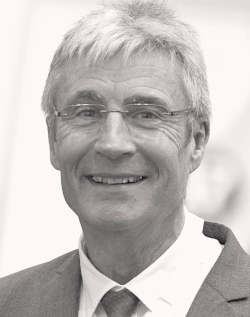
We manage this structure of about ten people, which is positioned as the missing link between university research and industry. What was missing was an intermediate stage where public funding doesn’t go up and private innovation funding doesn’t go down.
Our supervisors and main co-funders (the University of Nantes, the CNRS, the Atlantic France region, and the agglomeration of Saint-Nazaire) have given us three main missions:
- Support the development of the microalgae industry
- Raise the international profile and attractiveness of the region to attract talent, entrepreneurs, top-level researchers, and international students
- Encourage a change of scale to industrialise innovative solutions, particularly at intermediate levels of technological maturity (TRL 2 to 7 in European innovation jargon)
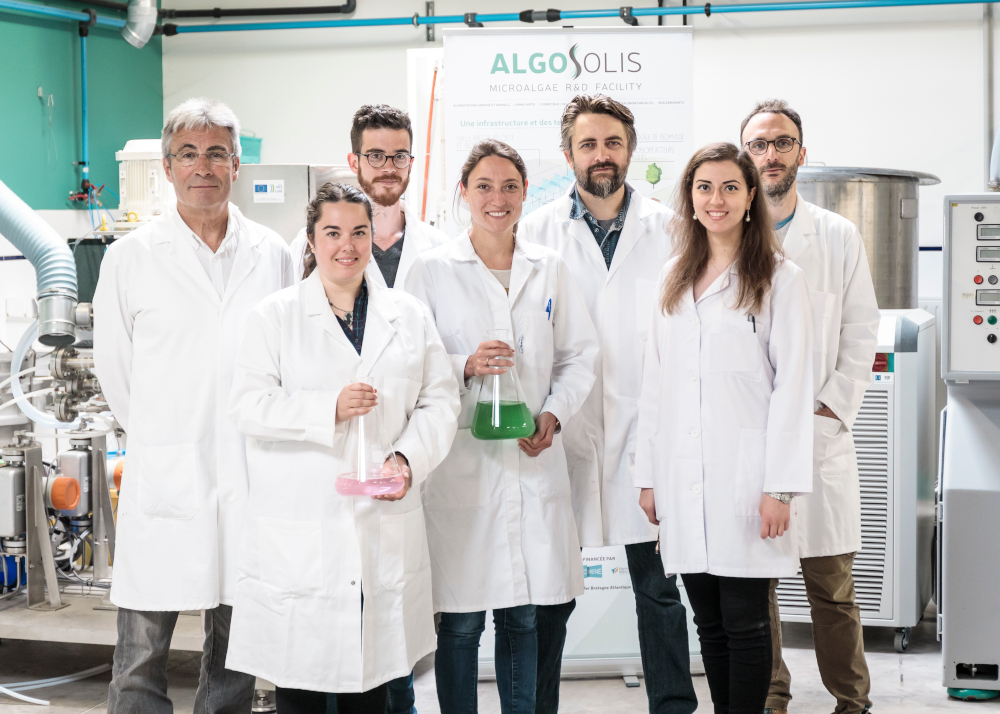
In which industries can microalgae be used?
There are many applications for microalgae in industry (from very small companies, SMEs, and ETIs to large corporations), including:
- Aquaculture: microalgae are the first link in the aquatic food chain and they provide all the basic biochemical substances required for life
- Food: for developing nutritional and bioactive supplements
- Feed: i.e. for animal food or nutrition, in order to produce or supplement kibble or wet food
- Cosmetics: microalgae are currently used in over 130 cosmetic products, mainly for their moisturising, antioxidant, and anti-wrinkle properties
- Health: this is a major issue because there are cancers for which better therapeutic support is required to make treatments more effective and to limit the side effects of chemotherapy, as it puts a great strain on the body. The Guérande-based company AlgoSource, for example, is involved in the designing and managing of clinical trials currently underway at several French university hospitals
- Plant health and biocontrol: to improve the soil and combat plant pathologies and parasites
- Production of biomaterials: with the aim of additive manufacturing in 3D printing using polysaccharides (sugars) from microalgae
- Energy: with the extraction of lipids (oils) that could serve as the basis for new-generation fuels, particularly for aviation
- Green chemistry: by producing and extracting “platform molecules” of potential interest as synthesis intermediates
- Industrial ecology: algae are excellent CO2 and nitrogen fixers, making it possible to convert gaseous or liquid effluents into reusable algal organic matter
- Space: where the general challenges are those of “supporting life in space” with real terrestrial spin-offs in terms of circular engineering. Since January 2024, AlgoSolis has been a member of the European consortium MELiSSA, which is led by the European Space Agency (ESA)
What support does AlgoSolis offer?
AlgoSolis has pre-industrial facilities (20 production lines) for strain selection, microalgae production, and biorefining. We offer scientific support for projects in collaboration with the GEPEA laboratory, which can lead to the development of intellectual property, through, for example, the filing of patents after examination by SATT Ouest Valorisation. We also provide project engineering, including the associated financial arrangements and human resource management, in close collaboration with Capacités SAS, which provides us with effective day-to-day support in these areas. As well as this, we work closely with competitiveness clusters such as Pôle Mer Bretagne Atlantique, Valorial, and Atlanpole.
Around 70% of our activity is devoted to national or international collaborative programmes, which are often financially supported by French or European aid, and 30% to services for clients. GEPEA has around twenty ongoing PhD theses on microalgae and five to ten national or European projects. Several of these projects regularly involve AlgoSolis to validate a scale-up phase. Finally, we provide temporary accommodation for very small companies and support deep tech start-ups in their early stages. Our strength is that we take a long-term approach when developing new products, new processes, and new applications.
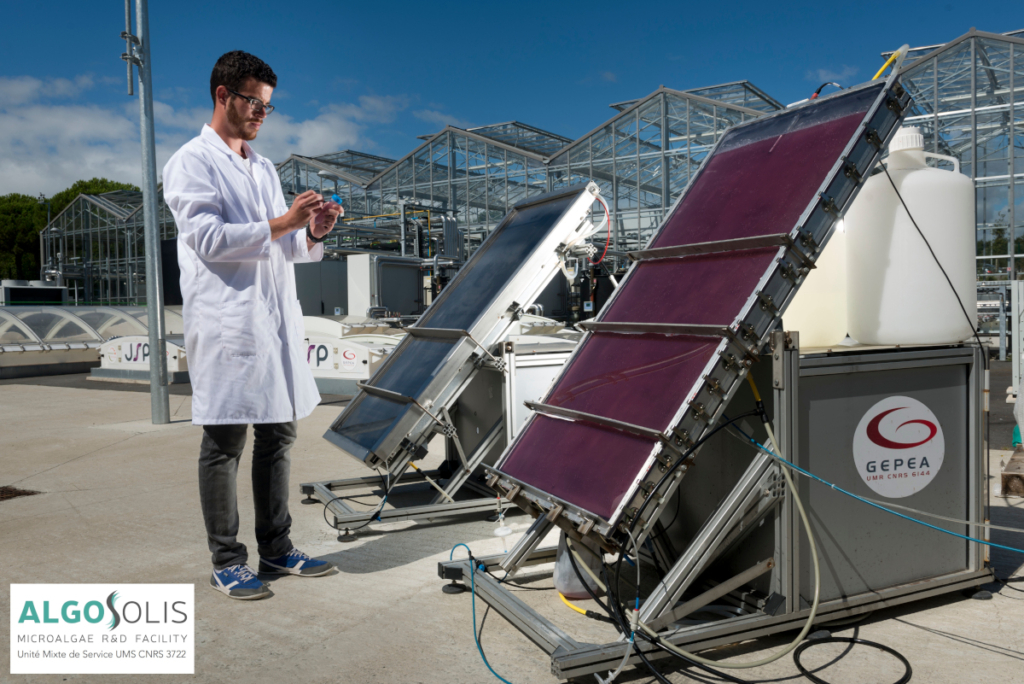
You work on a wide range of projects. What are the most significant recent examples?
In the field of bioprocesses and microalgae, our GEPEA Laboratory + AlgoSolis tandem R&D platform is one of the top 3 in Europe and, together with our regional industrial partners, we are probably one of the most structured microalgae research and innovation clusters in the world. Three of our recent projects are particularly promising:
- Qinetiq: we worked with Capacités SAS, a spin-off of the European Space Agency, on a project to harvest microalgae and recycle culture media for one of the compartments of the life-support system in space.
- Spirubio: we led this project with the support of the Atlantic France regional council. The objective was to contribute to the development of processes and protocols for the production of microalgae to obtain organic certification, in particular for spirulina. The aim is to help regional companies face foreign competition.
- CimentAlgue: this is a collaborative programme supported by Ademe in partnership with Vicat, France’s largest cement producer. The aim was to use waste heat from the cement plant to heat a production tank and to use CO2 as a carbon source for the production of microalgae. This industrial demonstrator came to fruition in Isère (France). AlgoSource is the current operator.
And what would be your favourite project?
We had the pleasure of taking part in Discuss, a project carried out with the renowned University of California UCLA, in Los Angeles: my colleague Prof. J. Pruvost supervised (at GEPEA and AlgoSolis level) a doctoral thesis under joint supervision with this American university. Jack, the student concerned, defended his thesis on the solar production of microalgae with optimisation of the production tool. The aim in this case would be to develop urban algaculture.
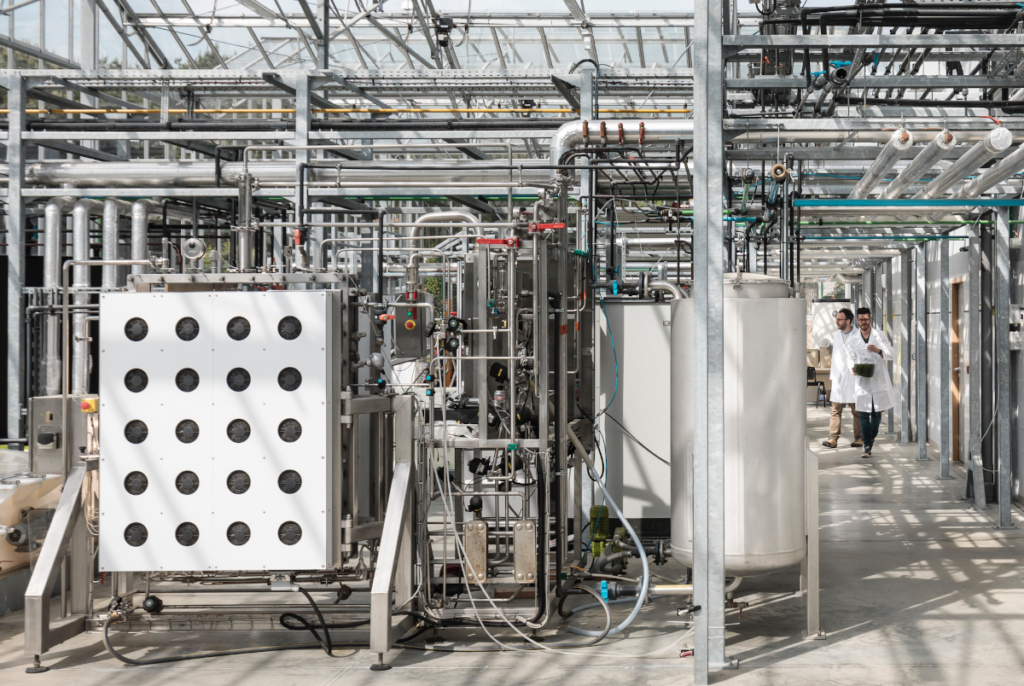
What are the advantages of the Atlantic France region for the development of the microalgae industry?
Because we’re by the ocean, there’s a high concentration of players (research, companies, vocational and/or university education) in the field of marine biotechnologies, and Atlantic France offers a wealth of opportunities for cross-fertilisation. In terms of microalgae research, the scientific community in the Nantes Saint-Nazaire area is among the top 10 in the world in terms of publications: it’s a place where there is a lot of activity.
This momentum is also supported by a real political will, and the Atlantic France regional council launched its microalgae roadmap three years ago to coordinate this ambition. As a local authority, the Saint-Nazaire agglomération has also always actively supported our projects.
How do you view the development of the microalgae sector in Atlantic France over the last few decades?
I’ve been working in this field for 35 years, so I’m particularly aware of the changes that have taken place in the region, and the progress that has been made is significant. With our teams, we are very committed to structuring the education/research/innovation/industry continuum, because each sector feeds off the others: it is essential to get them to interact and work together so that innovation is passed on and is useful to companies. We want the AlgoSolis research and innovation platform to act as a bridge between academia and industry, as this is something that has been lacking in the past.
We’ve made good progress and are almost there: the aim is that, within a year or two, whoever we’re talking to (a small local spirulina producer, a prestigious university, or a major company) can ask us any question about microalgae and we’ll be able to give them the answer or find a way to do so; for instance, we could launch a research project under a CIFRE agreement, organise a conference, temporarily host a startup, organise a training course, or simply produce biomass, etc.
We also have real opportunities for international growth. In addition to the European collaborative projects in which we are already involved, we believe that our recent integration into the two prestigious consortia ‘MELiSSA-ESA’ (Transfer from Space to Earth) and ‘IBISBA.eu’ (Pan-European Research Infrastructure, Industrial Biotechnology) will enable us to make a rapid qualitative leap forward. With our two recent recruitments (Director of Operations and Maintenance Technician) and the entire AlgoSolis team, we are now well-equipped to be the benchmark platform and catalyst for innovation and R&D in microalgae at European level.


 日本語
日本語  Français
Français 
